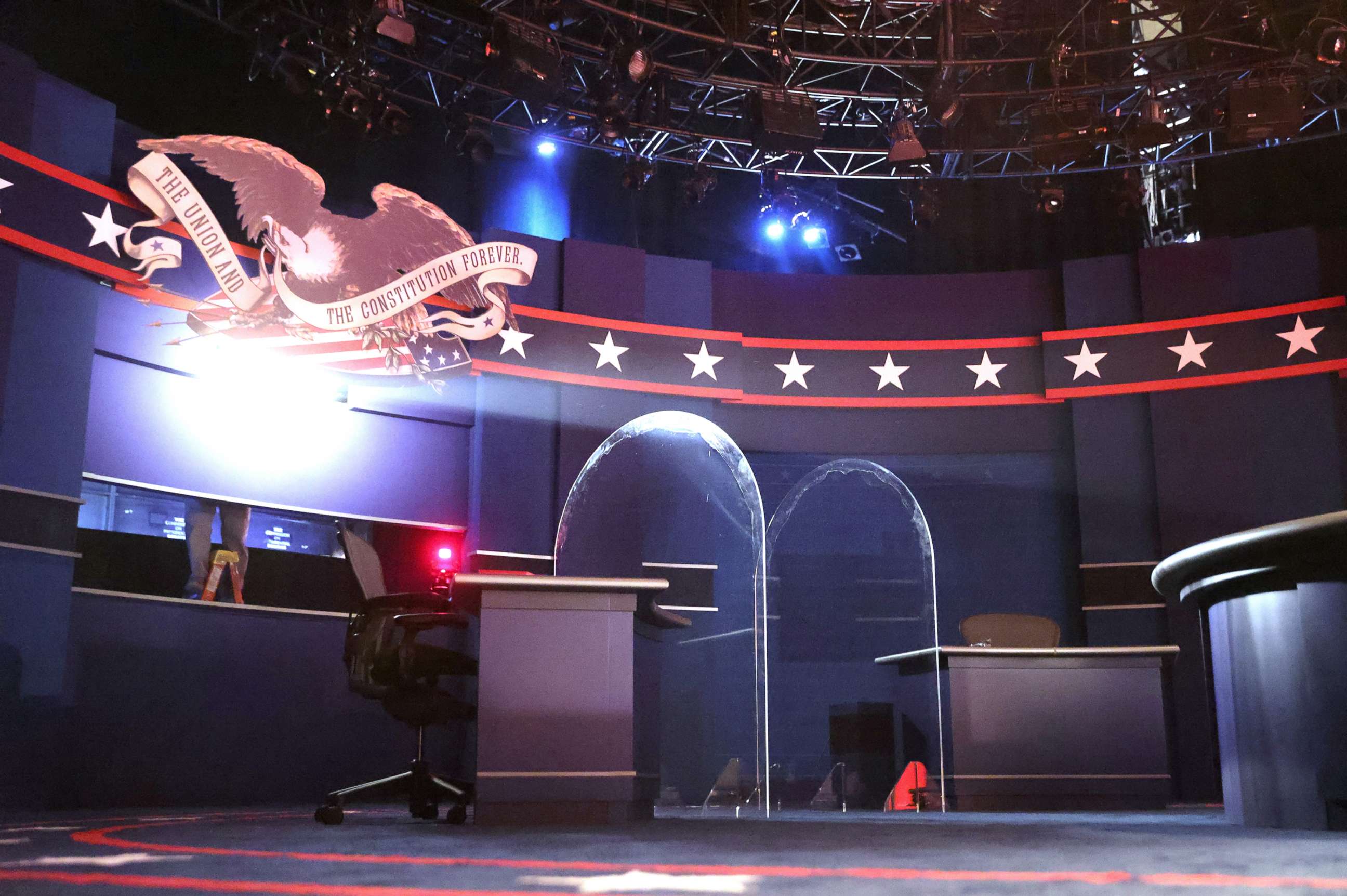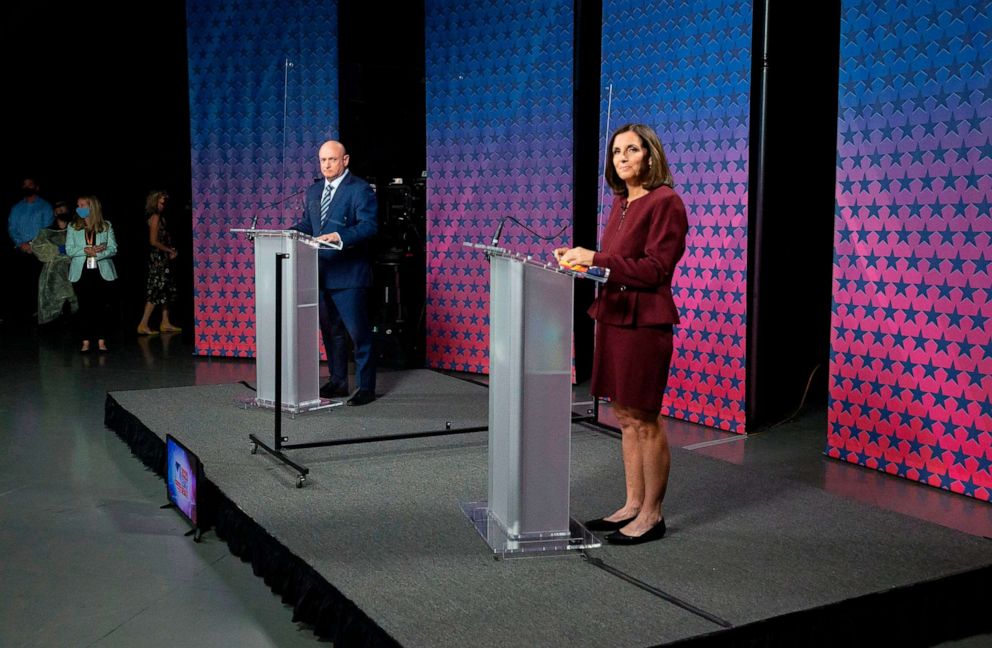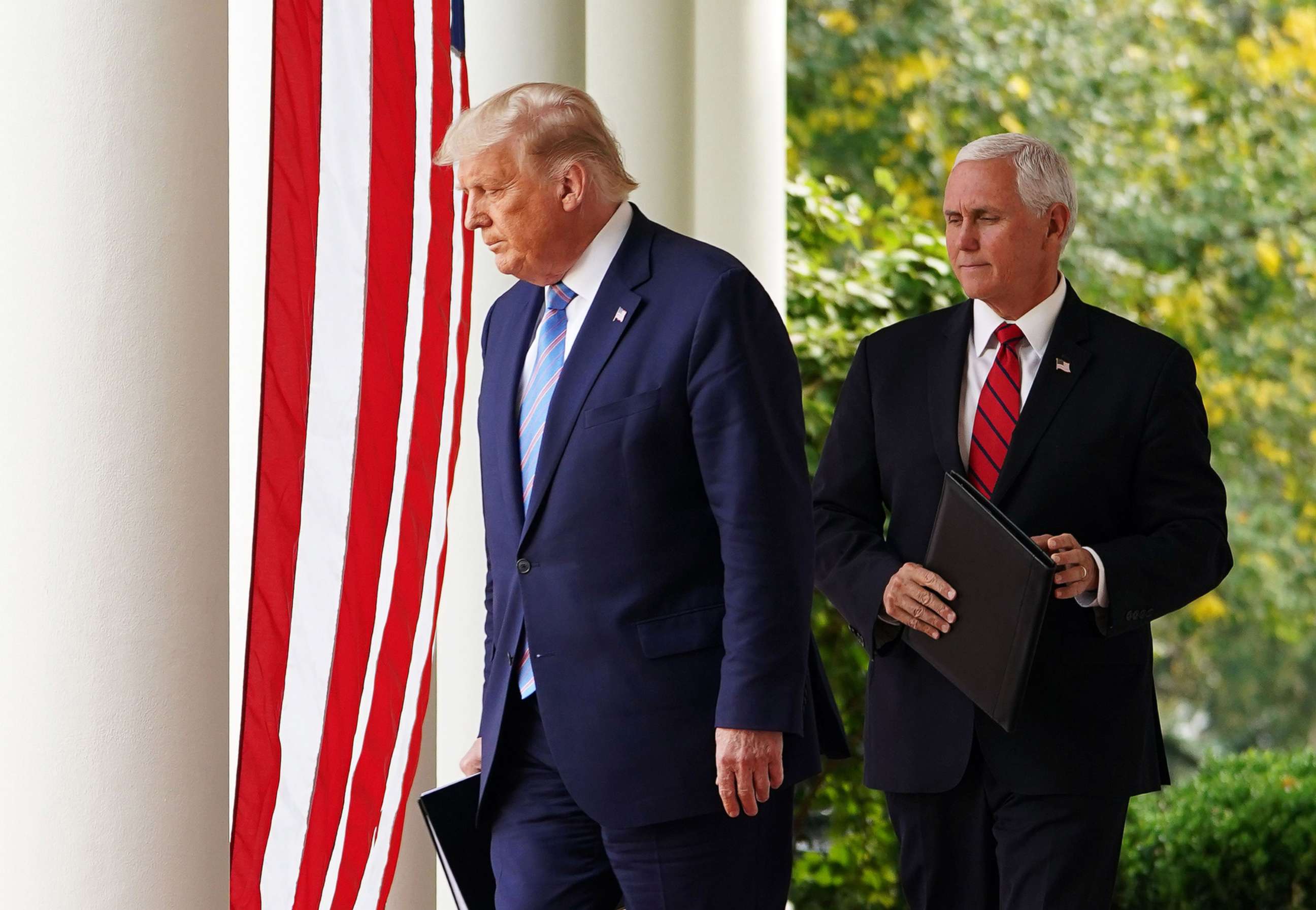Experts express concerns about possible coronavirus transmission at vice president debate
Two, five-foot tall plexiglass walls will stand between Vice President Mike Pence and Sen. Kamala Harris at Wednesday night’s debate.
The thick plastic barriers, approved by the Commission on Presidential Debates, will try to prevent the possible transmission of the coronavirus as Pence and Harris face off onstage for 90 minutes.
The Debate Commission said the plexiglass was part of a “variety of health safety protocols,” according to a factsheet. “Plexiglass will be used as part of the CPD’s overall approach to health and safety.”

Experts say that among the many protective measures put in place, the proposed plexiglass may not be the most effective option, particularly in light of updates from the Centers for Disease Control and Prevention to its guidelines on Monday acknowledging the potential for airborne transmission of the virus while indoors.
According to the CDC, it's possible for the virus to be transmitted beyond 6 feet by forming particles that can linger in the air for prolonged periods of time when infectious individuals “cough, sneeze, sing, talk, or breathe." The risk of airborne transmission is greatest in poorly ventilated indoor spaces as well as during prolonged exposure. Pence and Harris will be 12 feet apart from each other and from the moderator.
The clear dividers on stage could offer an added layer of protection, but it should not be a standalone measure, experts say.
More on experts concerns about safety protocols for the debate can be found here.
-ABC News' Sasha Pezenik and Ramie Fathy







